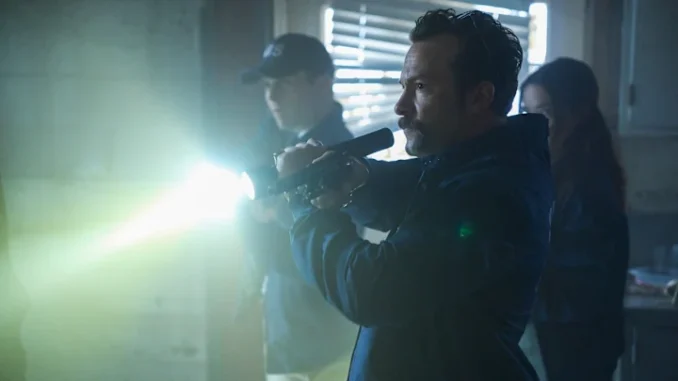
Introduction: The Emotional Toll of Storytelling
When a TV series like NCIS spans decades and captures the hearts of millions, its writers bear the responsibility of shaping a narrative that surprises, entertains, and sometimes devastates. However, even the creators of the stories aren’t immune to emotional turmoil. Imagine being told to erase a beloved character, someone you’ve carefully crafted and developed—a character that feels like family not just to fans but to the writers themselves. One NCIS writer faced exactly that, and the journey to executing this decision was anything but smooth.
The Role of Recurring Characters in NCIS Success
Recurring characters in NCIS have been the glue that holds together the show’s episodic and seasonal arcs. These characters often fill roles that enrich the main cast, offering emotional depth, humor, or tension. So when a beloved recurring character is written off, it’s like pulling a thread from a carefully woven tapestry.
Why Killing Off Characters Becomes Necessary
Keeping the Story Fresh
In a show that’s been running for over 20 seasons, staying unpredictable is key to retaining viewers. Sometimes, major character deaths are necessary to inject shock and drive the story forward.
Actor Availability
At times, the decision isn’t purely creative but logistical. Conflicts in actor schedules or other commitments can lead to an exit, leaving the writers to tie up loose ends dramatically.
Fan Reactions to Shocking Exits
While fans often react strongly—sometimes angrily—to character deaths, these moments create watercooler conversations that keep the show relevant.
The Shocking Directive: Kill Off a Beloved Character
The writer, who remains unnamed in public interviews, recounted the moment the showrunner delivered the shocking directive. “It felt like being asked to pull the rug out from under myself,” they shared.
Crafting a Meaningful Goodbye
Balancing Emotion and Plot
The writer faced the challenge of honoring the character while ensuring the death wasn’t gratuitous. Every line, every interaction leading up to the death had to carry weight, leaving fans feeling the loss in a profound way.
Collaboration with the Actor
The actor playing the character was given the respect of being involved in discussions about their exit. This collaboration ensured the portrayal remained authentic and heartfelt.

Fan Backlash: Love Hurts
When the episode aired, social media exploded. Fans expressed a range of emotions, from heartbreak to outright anger. Some threatened to stop watching, while others praised the show for its bold storytelling.
A History of NCIS Character Losses
Kate Todd’s Shocking Demise
One of the first major character deaths on NCIS was Kate Todd, whose exit in Season 2 left fans reeling.
Ziva David’s “Death” and Return
Although Ziva’s “death” wasn’t permanent, it still left a lasting impact on the fanbase.
Mike Franks’ Heroic Sacrifice
The death of Mike Franks was another moment that reminded fans of the high stakes in the NCIS world.
How Writers Cope With Emotional Storylines
The Psychological Toll
Writing off a beloved character can feel akin to losing a friend. Writers often share how they need time to decompress after crafting such scenes.
Support from the Team
The collaborative environment of the NCIS writing team helps writers cope. Sharing the burden with others who understand the emotional weight can make a difference.
The Character’s Legacy Lives On
Even after a character is gone, their influence often lingers in the stories and hearts of other characters. Flashbacks, references, and tributes ensure that the spirit of these characters remains alive.
What This Means for NCIS Fans
For viewers, the loss of a beloved character is a reminder of the unpredictability of the NCIS world. It’s a testament to the show’s commitment to authenticity and risk-taking.
Why the Writer Agreed to the Decision
Ultimately, the writer admitted that while the directive was heartbreaking, it was also an opportunity to tell a story that would leave an indelible mark.
The Episode That Changed Everything
The episode in question became one of the most talked-about of the season, sparking debates and discussions among fans and critics alike.
Lessons Learned From the Experience
The Importance of Taking Risks
As painful as it was, the decision underscored the value of taking creative risks.
Audience Connection Matters
The overwhelming fan response showed just how deeply viewers cared about the character.
Conclusion: An End That’s Also a Beginning
Killing off a beloved character is never easy—neither for the writers nor the fans. But in the end, it’s these gut-wrenching decisions that elevate storytelling, leaving an impact that lingers long after the credits roll. The NCIS team has always understood this delicate balance, and this particular character’s exit will undoubtedly go down as one of the show’s most unforgettable moments.
FAQs
1. Which NCIS character was killed off in this controversial episode?
The identity of the character varies depending on fan interpretation and timeline, as the show has had multiple such exits.
2. How do NCIS writers decide on character deaths?
Character deaths are usually decided based on story needs, actor availability, or a desire to keep the narrative fresh and unpredictable.
3. Did the fans’ backlash affect future storylines?
While writers consider fan reactions, they prioritize crafting compelling stories that serve the series’ vision.
4. Has NCIS ever brought back a character after their death?
Yes, through flashbacks, dream sequences, or twists like Ziva David’s return.
5. What do writers say about killing off beloved characters?
Most writers admit it’s an emotional and challenging decision but view it as a necessary aspect of storytelling to keep viewers engaged.